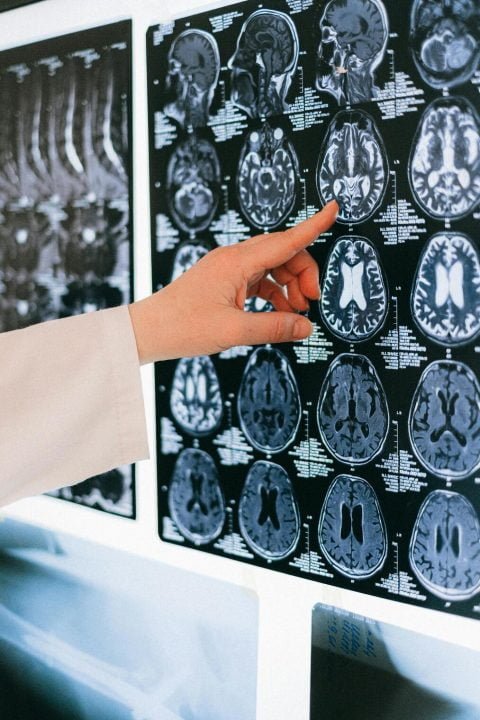Medically Reviewed by:
Khushal Girigosavi, a peer reviewer at the Cureus Journal with numerous research papers to his name, maintains high standards in medical research.
Have you ever wondered how long you will live? It’s a question that may have crossed your mind from time to time. Well, the answer might lie within the very organ that allows us to ponder such questions – our brain. Yes, that’s right! Your brain health plays a crucial role in determining your lifespan.
Now, before we dive into the intriguing details, let’s take a moment to think about something. We often associate ageing with physical changes – greying hair, wrinkled skin, and achy joints. But what about the ageing process that takes place inside our brains? How does it affect our overall health and longevity?
In India, where we are witnessing a significant increase in life expectancy, understanding the connection between brain health and lifespan becomes even more essential. As we continue to age, the importance of maintaining cognitive wellness cannot be underestimated. And that’s what brings us here today – to shed light on how your brain health can impact how long you will live.
In this blog post, we will explore the fascinating relationship between brain health and longevity. We’ll discuss the key factors that contribute to your brain’s well-being and how they influence the ageing process. From lifestyle choices to genetic predispositions, we’ll uncover the intricate web of connections that shape our mental and physical well-being as we grow older.
So, are you ready to embark on this enlightening journey? Let’s delve into the world of brain health of Indians and discover just how much it can determine your lifespan.
Factors affecting the brain health of Indians
1. Lifestyle choices
Leading a healthy lifestyle can significantly impact brain health. Regular exercise, a balanced diet rich in nutrients, proper sleep, and stress management can all contribute to maintaining a healthy brain as we age.
| Easy recipe: For a brain-boosting meal, all you need is to whip up a vibrant Desi vegetable curry. Sauté diced tomatoes, onions, and spinach in olive oil. Add turmeric, cumin, and coriander for flavour. Simmer until veggies are tender. Pair with whole-grain rice cooked with a pinch of turmeric. This nutrient-packed dish supports brain health with antioxidants and anti-inflammatory properties. |
2. Chronic conditions
Certain chronic conditions like hypertension, diabetes, and heart disease can affect blood flow to the brain and increase the risk of cognitive decline. Managing these conditions through medication and lifestyle changes is crucial for preserving brain health.
3. Social engagement
Staying socially active and connected is essential for brain health. Engaging in activities with friends and family, participating in community events, and pursuing hobbies can help stimulate the brain and reduce the risk of cognitive decline.
4. Mental stimulation
Keeping the brain active and engaged is vital for its health. Activities like reading, puzzles, learning new skills, and staying mentally stimulated can help preserve cognitive function as we age.
5. Emotional well-being
Mental health plays a significant role in brain health. Managing stress, seeking support when needed, and prioritising emotional well-being are essential for maintaining a healthy brain.
Understanding the ageing brain
As we age, our brains naturally change. These changes can impact our cognitive abilities and overall brain health. Understanding these changes can help us take proactive steps to maintain a healthy brain throughout our lives.
1. Decreased brain size
With age, the size of our brains tends to shrink slightly. This can affect memory, attention, and other cognitive functions. However, a healthy lifestyle can help slow down this process and minimise its impact.
2. Reduced blood flow
The ageing process can lead to reduced blood flow to the brain, affecting its ability to receive oxygen and nutrients. Regular exercise and a healthy diet can improve blood circulation and support brain health.
3. Neurotransmitter imbalance
Changes in neurotransmitter levels can occur as we age, affecting communication between brain cells. This can impact mood, memory, and cognition. Engaging in mentally stimulating activities and maintaining a healthy diet can support neurotransmitter balance.
4. Increased risk of neurodegenerative diseases
As we get older, the risk of developing neurodegenerative diseases such as Alzheimer’s or Parkinson’s increases. While there is no guaranteed way to prevent these diseases, adopting a brain-healthy lifestyle may reduce the risk or delay their onset.
| Fact check: What is Parkinson’s disease? Answer: Parkinson’s disease is a progressive neurodegenerative disorder that primarily affects movement control. It is characterised by the gradual loss of dopamine-producing cells in the brain, leading to symptoms such as tremors, stiffness, slowness of movement, and impaired balance. |
Strategies for maintaining brain health of Indians
Now that we understand how brain health impacts lifespan determinants and ageing in the Indian population, let’s explore some strategies for maintaining a healthy brain as we age:
- Stay physically active: Regular exercise improves blood flow to the brain and promotes the growth of new brain cells. Aim for at least 30 minutes of moderate-intensity exercise most days of the week, such as walking, swimming, or dancing.
- Eat a brain-healthy diet: Include foods rich in antioxidants, omega-3 fatty acids, and nutrients like fruits, vegetables, whole grains, fish, and nuts. Limit processed foods, saturated fats, and sugary snacks to support brain health.
- Challenge your brain: Engage in activities that challenge your cognitive abilities regularly. Read books or newspapers, solve puzzles, learn a musical instrument, or take up a new hobby to keep your brain active and stimulated.
- Get quality sleep: Prioritise good sleep hygiene by maintaining a regular sleep schedule and creating a conducive sleep environment. Aim for 7-8 hours of quality sleep each night to support brain health.
- Manage stress: Chronic stress can negatively impact brain health. Practice stress management techniques such as deep breathing exercises, meditation, yoga, or engaging in activities that bring you joy and relaxation.
| Fun tip: Create a “pre-sleep sanctuary” by turning off electronic devices an hour before bedtime. Instead, unwind with a good book or indulge in a calming bedtime routine. This digital detox helps signal to your brain that it’s time to wind down, promoting better sleep quality and a more restful night. |
Seeking professional guidance for cognitive wellness
If you’re concerned about your brain health or have noticed changes in your cognition as you age, it’s important to seek professional guidance. A healthcare provider specialising in neurology or geriatrics can evaluate your condition and provide personalised recommendations to maintain or improve your brain health.
In conclusion, understanding the connection between brain health and lifespan is crucial for all of us as we age. As we have learnt in this blog, our cognitive wellness plays a significant role in determining how long we will live. It is not just about physical health; our brains need to be nurtured and cared for as well.
But don’t worry, there are steps we can take to improve our brain health and potentially increase our lifespan. Regular exercise, eating a healthy diet filled with brain-boosting foods, engaging in mentally stimulating activities, and socialising with others are all important longevity factors that can contribute to maintaining a healthy brain.
Additionally, it’s essential to be aware of any signs or symptoms that may indicate cognitive decline. If you or a loved one are experiencing memory problems or difficulty thinking clearly, it may be beneficial to seek out medical advice and consider taking cognitive tests that can provide further insights into your brain health.
If you’re eager to delve deeper into understanding brain health in India or seek additional resources, explore Ivory’s cognitive tests. Our platform is dedicated to supporting you on the path to optimal brain health and longevity, with a focus on addressing memory loss and assessing cognitive age. Connect with us now to unlock the potential that lies ahead in your cognitive journey, helping you manage and improve these crucial aspects of mental well-being.
Remember, knowledge is power. By understanding the connection between brain health and longevity factors, we can become proactive in taking care of ourselves as we age. Let’s make an effort to prioritise our brain health so that we can continue living fulfilling and vibrant lives for years to come.




